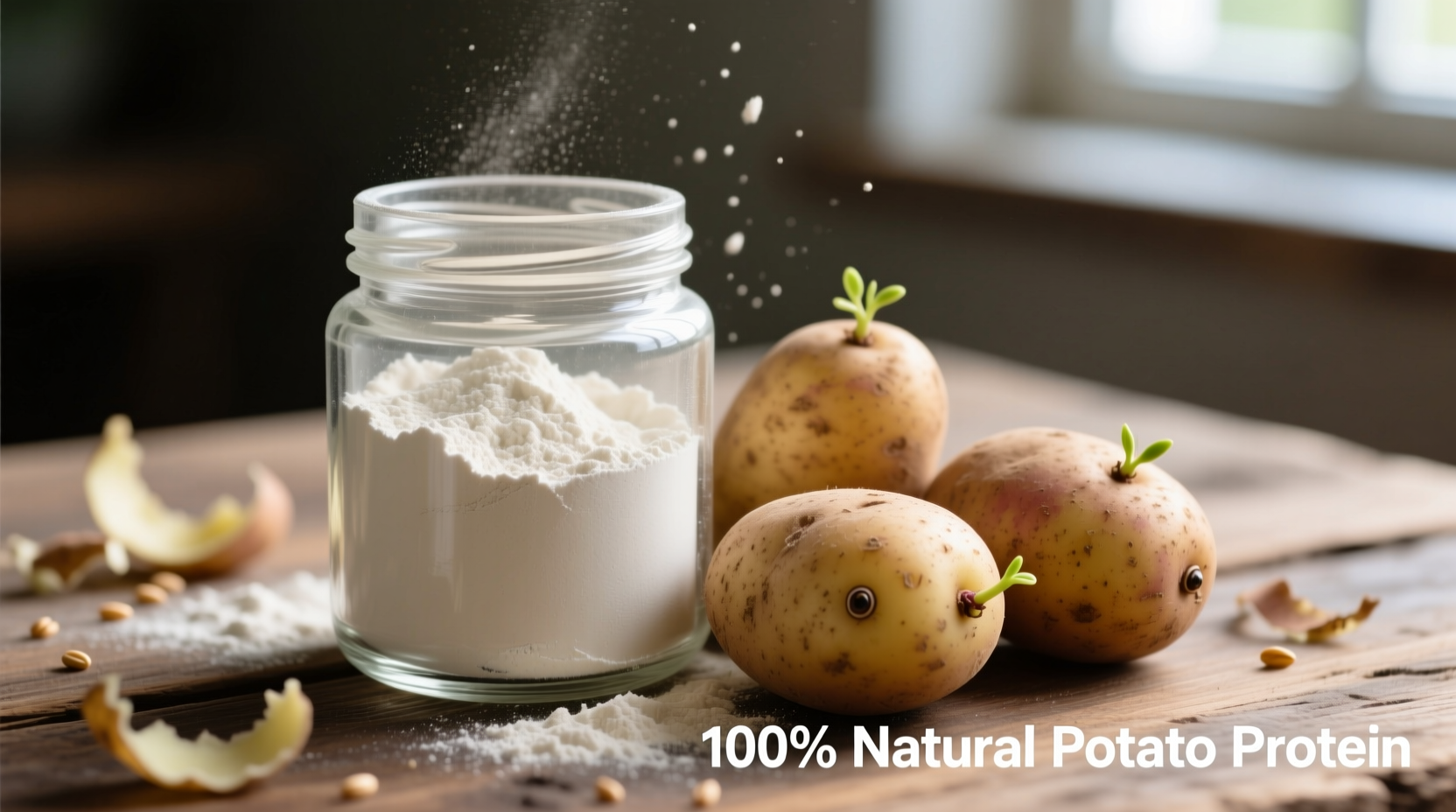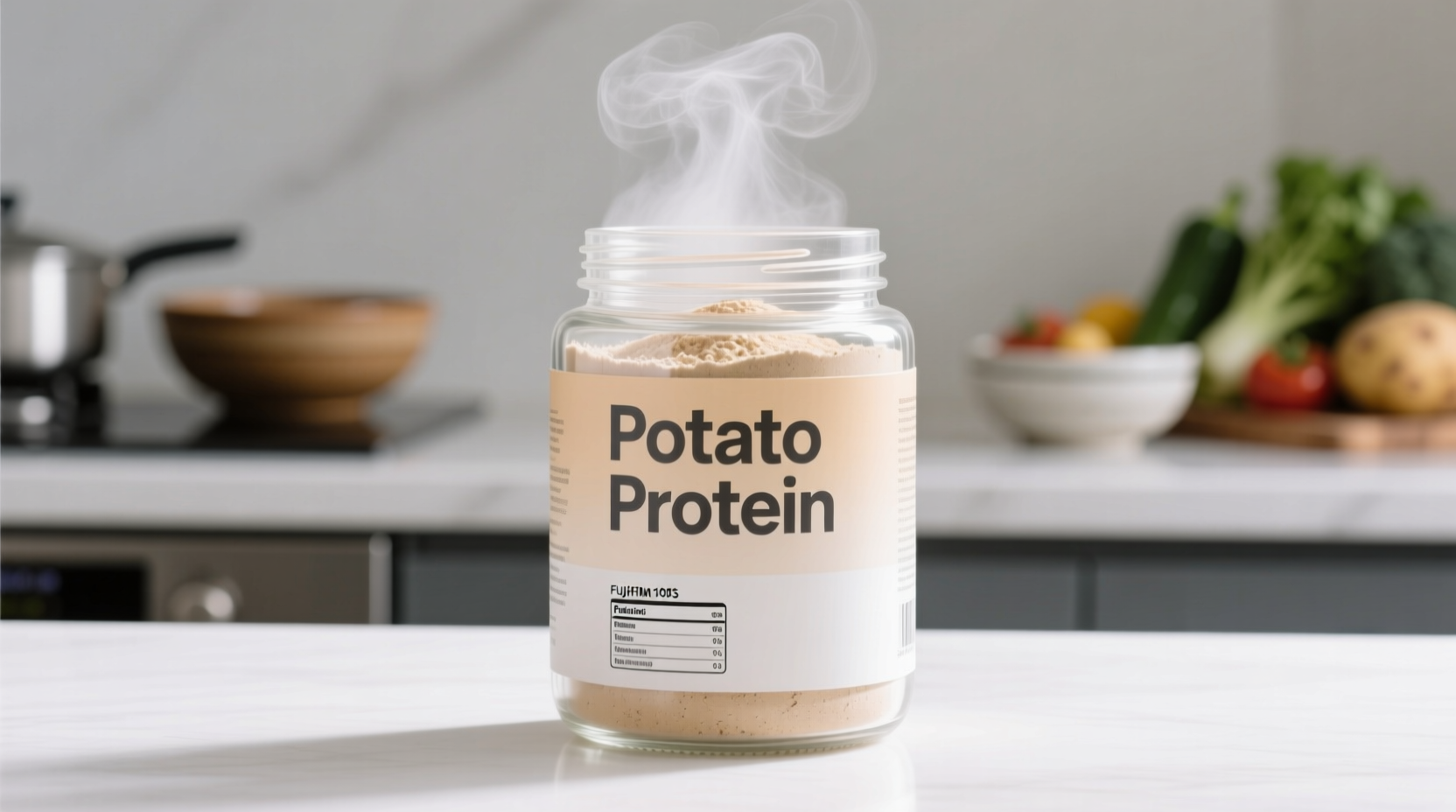What Exactly Is Potato Protein and Why It Matters for Your Diet
When you're exploring plant-based protein options, potato protein stands out as a surprisingly complete and versatile choice. Unlike whole potatoes (which contain only about 2% protein), potato protein isolate is a concentrated form extracted during starch production, containing 70-85% pure protein by weight. This isn't just another protein powder on the shelf—it's a solution for specific dietary needs that many other plant proteins don't address as effectively. Let's break down what makes potato protein worth considering for your nutritional strategy.How Potato Protein Compares to Other Protein Sources
| Protein Source | Protein Content | PDCASS Score | Allergen Risk | Environmental Impact |
|---|---|---|---|---|
| Potato Protein | 70-85% | 0.94-1.0 | Very Low | Low (water usage 90% less than beef) |
| Whey Protein | 70-90% | 1.0 | High (dairy) | Moderate-High |
| Soy Protein | 65-80% | 0.91-0.97 | Moderate (soy) | Moderate |
| Pea Protein | 70-85% | 0.82-0.89 | Low | Low |
Source: USDA FoodData Central, Journal of Agricultural and Food Chemistry (2023)
Who Benefits Most From Adding Potato Protein to Their Diet
Potato protein isn't just for bodybuilders or strict vegetarians. Its unique properties make it valuable for several specific groups:- Athletes with sensitive digestion—its high digestibility (95-98%) means less bloating than many plant proteins
- People with multiple food allergies—naturally free from common allergens like soy, dairy, gluten, and nuts
- Those managing kidney health—produces less metabolic waste than animal proteins according to NIH research
- Environmentally conscious consumers—requires significantly less water and land than animal proteins

Potato Protein Through the Years: A Timeline of Scientific Understanding
1980s: Potato protein recognized as having good amino acid profile but limited research on practical applications
2005: USDA confirms potato protein as a complete protein containing all nine essential amino acids
2015: European Food Safety Authority approves potato protein isolate as novel food ingredient
2020: Journal of Nutrition publishes study showing 95% digestibility rate in human trials
2023: Research in Plant Foods for Human Nutrition demonstrates comparable muscle synthesis to whey protein in resistance training
When Potato Protein Works Best (And When It Doesn't)
Potato protein shines in specific scenarios but has limitations you should understand:Best applications:
- Post-workout recovery for those with dairy sensitivities
- As a hypoallergenic protein source for children's nutrition
- Thickening agent in soups and sauces (provides protein boost without flavor interference)
- Base for vegan cheese alternatives (mimics casein's functional properties)
Limitations to consider:
- Not ideal as sole protein source long-term (slightly lower leucine content than whey)
- May cause digestive issues if consumed in very high quantities (>50g at once)
- Less effective for baking applications compared to wheat or egg proteins
- Quality varies significantly between manufacturers (look for 80%+ protein content)
How to Use Potato Protein Effectively in Your Daily Routine
Unlike some protein powders that dominate your recipe's flavor, potato protein's neutral taste makes it incredibly versatile:- Smoothies: Add 1-2 scoops to fruit-based smoothies (works particularly well with banana and berries)
- Baking: Replace 15-20% of flour in pancakes or muffins for protein boost
- Savory dishes: Stir into soups, stews, or sauces during the last 5 minutes of cooking
- Protein water: Mix 20g with cold water and a squeeze of citrus for quick absorption
Addressing Common Concerns About Potato Protein
Many people worry that potato protein might cause the same blood sugar spikes as regular potatoes. This isn't the case—protein isolates contain negligible carbohydrates. According to research published in the Journal of Functional Foods, potato protein isolate has less than 5% carbohydrates and doesn't significantly impact blood glucose levels. Another common misconception is that all plant proteins are incomplete. Potato protein contains all nine essential amino acids, making it a complete protein source, though with slightly lower leucine content than animal proteins. Combining it with other plant proteins easily addresses this minor limitation.Frequently Asked Questions About Potato Protein
Is potato protein a complete protein?
Yes, potato protein is a complete protein containing all nine essential amino acids required by the human body. According to USDA research, it has particularly high levels of lysine and phenylalanine, though slightly lower leucine content than animal proteins. This makes it valuable as part of a varied protein intake strategy.
How does potato protein digestibility compare to other plant proteins?
Potato protein has exceptional digestibility at 95-98%, which is higher than many plant proteins like pea (85-90%) or soy (90-95%). A 2022 study in the Journal of Nutritional Science confirmed its high digestibility even in individuals with sensitive digestive systems, making it suitable for those who experience discomfort with other plant proteins.
Can potato protein cause allergic reactions?
Potato protein is considered hypoallergenic and is free from the top eight allergens (including dairy, soy, gluten, and nuts). The European Food Safety Authority has confirmed its safety for most populations. However, individuals with rare potato allergies (approximately 0.1% of the population) should avoid it. Unlike many plant proteins, it doesn't commonly cause digestive discomfort even at moderate doses.
How much potato protein should I consume daily?
Most adults need 0.8g of protein per kilogram of body weight daily. For potato protein specifically, 20-30g per serving is optimal for muscle protein synthesis. Research in the American Journal of Clinical Nutrition suggests spreading protein intake throughout the day (20-40g per meal) rather than consuming large amounts at once, as the body can only effectively utilize about 30g of protein at a time for muscle building.
Does potato protein contain solanine or other potato toxins?
No, commercial potato protein isolates undergo rigorous processing that removes solanine and other glycoalkaloids. The European Food Safety Authority requires potato protein products to contain less than 0.2mg/kg of glycoalkaloids, well below safety thresholds. Quality manufacturers test each batch for contaminants, making properly processed potato protein isolate safe for regular consumption.











 浙公网安备
33010002000092号
浙公网安备
33010002000092号 浙B2-20120091-4
浙B2-20120091-4